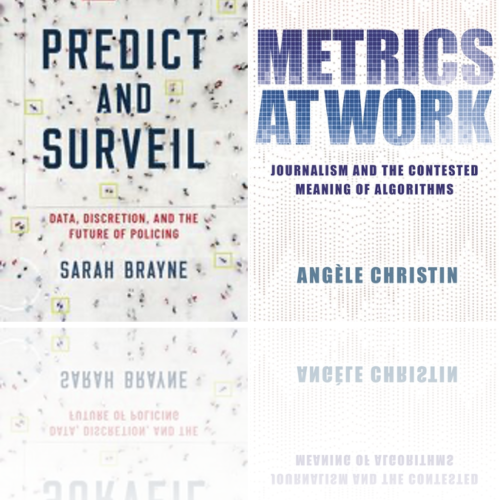On the Bookshelf, with Dorottya Sallai and Barbara Kiviat
SASE is an international organization with members around the globe, reading thousands of books related to socio-economics every year across topics and languages. To get a sense of what is on SASE members’ minds, the newsletter editors asked some of the voracious readers that make up our association to recommend a few books they are reading (or re-reading) and to tell us a bit about them. This edition of On the Bookshelf features recommendations from Dorottya Sallai (London School of Economics) and Barbara Kiviat (Stanford University).

Sam Friedman and Daniel Laurison
The Class Ceiling: Why it Pays to be Privileged, by Sam Friedman and Daniel Laurison (Policy Press, 2020)
I recommend SASE readers a book written by Sam Friedman and Daniel Laurison, The Class Ceiling: Why it Pays to be Privileged. This book is amazing in shedding light on a seriously under-researched root of inequality in modern Britain: “class”. Although at first, I was skeptical about the concept in the 21st century, but when I was reading this book it became painfully clear how deep-rooted and “hidden” privilege is in the UK and how it still drives inequality in the labour market. The book investigates class, not only from the perspective of the class pay-gap (which is eye-opening in itself), but reveals how difficult it is to access and progress elite professions for those who come from working-class or “intermediate” backgrounds, even if they complete top university degrees. The privileged dominate the UK’s elite occupations. Through case studies of four elite occupations, the authors reveal that social mobility is hindered by several invisible factors that drive selection and progression in the workplace, such as having the necessary corporate “polish”, “studied informality” or being seen as a good “fit” to the company. These invisible barriers entail the mastery of behavioral codes such as how you dress, how you behave, whether you have the right accent as well as how confident you are in formal meetings or informal dinners. What I particularly like in this book is that the first part sets out the research findings for a general audience who are not specialists in mobility and the sociology of class, the second part is written for scholars and the last chapter is dedicated to some practical recommendations that employers can implement to identify and try to break the class ceiling. I truly hope many will at least try.
– Dorottya Sallai

Angèle Christin and Sarah Brayne
Predict and Surveil: Data, Discretion, and the Future of Policing, by Sarah Brayne (Oxford University Press, 2020)
Metrics at Work: Journalism and the Contested Meaning of Algorithms, by Angèle Christin (Princeton University Press, 2020)
For anyone interested in how data and algorithms change markets and other aspects of social life, I highly recommend Angèle Christin’s Metrics at Work and Sarah Brayne’s Predict and Surveil. These first-rate ethnographies take us inside the worlds of journalism and policing, respectively, to show how “big” data and sophisticated analytics transform organizational practices. Yet as each book illustrates in colorful detail, new technologies and ways of knowing are also deeply shaped by the social worlds into which they enter. By contrasting newsrooms in the U.S. and France, Christin demonstrates that national differences in how journalists view themselves as professionals mediate the growing tension between a market-driven desire for “clicks” and more traditional editorial judgment. In Predict and Surveil, Brayne reminds us that data use is fundamentally relational and shaped by power dynamics. While the book focuses on how the Los Angeles police department and its private-sector partners use data to make predictions about criminal suspects, it also shows what happens when the department tries to track its own employees—and how quickly scripts flip once police officers are the ones being surveilled.
– Barbara Kiviat